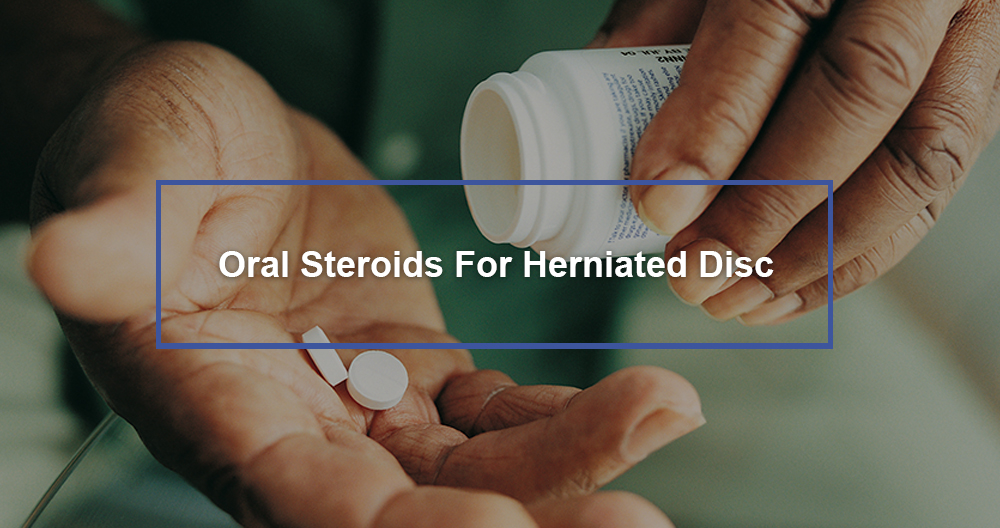
Herniated Disc – Nonsurgical Treatments
Most people don’t need surgery to treat symptoms of a herniated disc. It may take only a few days to relieve back pain with the help of over-the counter anti-inflammatory medications and rest. Spine specialists can provide nonsurgical treatments such as prescription medication and physical therapy if you continue to experience symptoms.
Medication
Different people may experience a herniated spine in different ways. A person may not feel any symptoms while another may experience severe pain. The NYU Langone doctors can help you decide the medication that is right for you based on what pains and your diagnosis.
Nonsteroidal Anti Inflammatory Medications
The nerves and soft tissue around the herniated disc may cause some of the discomfort associated with a herniated disc. A slipped disc can be caused by an inflamed or enlarged nerve. Nonsteroidal anti-inflammatory medications can reduce swelling and relieve the pain.
Aspirin, naproxen, and ibuprofen are some of the most popular nonsteroidal anti inflammatory medications. They are all available without prescription. Your doctor can advise you on how to use them. A doctor may prescribe stronger anti-inflammatory medication if the herniated disc is causing more severe pain than can be treated with over-the counter medications.
Muscle Relaxants
When a disc slips out of its place between vertebrae, pinching a nerve, electrical signals from the nerve to the nearby muscle tissue can be disrupted. This can lead to painful muscle spasms. Muscle relaxants can be used to calm spasms or ease pain so you can move more easily. For a week to two weeks, your doctor might prescribe these medications. Muscle spasms usually disappear on their own after that.
Prescription Pain Relievers
The pain that can result from a herniated nerve pinching can be very severe. While over-the-counter painkillers may be effective in relieving pain, prescription pain relievers may be recommended by your doctor if necessary. These medications can only be used for one week. They will not make your pain worse until you are prescribed a muscle relaxant.
Corticosteroids
Corticosteroids may be recommended by your doctor if you are experiencing neck and back pain that is not being relieved by other medications. The effects of steroids are to reduce inflammation and pressure on the affected nerve, as well as relieve pain. Only a prescription is required. Steroids can typically be used for 7 to 10 day. Your doctor will then reassess your symptoms before recommending any additional treatment.
Corticosteroid Injections
Corticosteroid injections for herniated disc pain are an option to oral corticosteroids. In most cases, injections are recommended after all other treatments have failed. Steroids have strong anti-inflammatory properties. They can be injected directly into epidural spaces, which is the fluid-filled space surrounding the spinal cord.
These injections can be done under local anesthesia. NYU Langone pain management specialists as well as radiologists use X Ray guidance to ensure the medication is precisely injected. The procedure takes approximately 30 minutes.
The effects of injected steroids on pain relief can last for as long as a year. However, injections may not be effective for everyone. It is difficult to know the effectiveness of an injection, but steroids can provide long-lasting relief for many people. It is best to use steroids just before starting physical therapy. This will allow strength-building exercises and painless injections.
Physical Therapy
An orthopedic doctor might work with a physical medicine doctor or psychiatrist to recommend physical therapy. Physical therapy can often relieve pain and prevent further damage from a herniated disc.
To treat symptoms of a herniated or bulging disc, it is important to strengthen the core muscles (the abdominal, lower thighs, and buttocks). These muscles will weaken the spine, which can cause it to bear more weight. This additional pressure could lead to instability or worsen existing spine problems. An exercise program can be designed by a physical therapist that will strengthen these core muscles. This can help improve your posture, alleviate pressure on nerves affected due to a slipped disc and reduce pain.
The physical therapist might also recommend complementary treatments that will improve overall function and help you feel stronger while building core muscles. You can also use massage therapy, stretching, heat or ice therapies to help.


